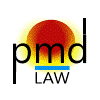

UDRP Section 4 a-c
Paragraph 4 section A through C of the UDRP (below) sets out the factors that a trademark holder (Complainant) must prove, particular indicia of such factors, and certain defenses available to the domain name registrant (Respondent).
Anyone considering filing a complainant under the UDRP should first assure themselves that that they have a reasonable likelihood of success by reviewing the requirements needed to prevail in light of the relevant fact. A potential complainant should also consider the arguments of the Respondent in defending the disputed domain name.
Likewise, a party needing to respond to a domain name complaint should be aware of the available defense. Both parties should review past decisions to help understand how a panel may find under particular fact patterns.
PMD Law can assist you in several ways in filing a complaint or responding to a complaint. Please contact us for more information.
UDRP Paragraph 4(a)-(c)
4. Mandatory Administrative Proceeding.
This Paragraph sets forth the type of disputes for which you are required to submit to a mandatory administrative proceeding. These proceedings will be conducted before one of the administrative-dispute-resolution service providers listed at www.icann.org/udrp/approved-providers.htm (each, a "Provider").
a. Applicable Disputes. You are required to submit to a mandatory administrative proceeding in the event that a third party (a "complainant") asserts to the applicable Provider, in compliance with the Rules of Procedure, that
(i) your domain name is identical or confusingly similar to a trademark or service mark in which the complainant has rights; and
(ii) you have no rights or legitimate interests in respect of the domain name; and
(iii) your domain name has been registered and is being used in bad faith.
In the administrative proceeding, the complainant must prove that each of these three elements are present.
b. Evidence of Registration and Use in Bad Faith. For the purposes of Paragraph 4(a)(iii), the following circumstances, in particular but without limitation, if found by the Panel to be present, shall be evidence of the registration and use of a domain name in bad faith:
(i) circumstances indicating that you have registered or you have acquired the domain name primarily for the purpose of selling, renting, or otherwise transferring the domain name registration to the complainant who is the owner of the trademark or service mark or to a competitor of that complainant, for valuable consideration in excess of your documented out-of-pocket costs directly related to the domain name; or
(ii) you have registered the domain name in order to prevent the owner of the trademark or service mark from reflecting the mark in a corresponding domain name, provided that you have engaged in a pattern of such conduct; or
(iii) you have registered the domain name primarily for the purpose of disrupting the business of a competitor; or
(iv) by using the domain name, you have intentionally attempted to attract, for commercial gain, Internet users to your web site or other on-line location, by creating a likelihood of confusion with the complainant's mark as to the source, sponsorship, affiliation, or endorsement of your web site or location or of a product or service on your web site or location.
c. How to Demonstrate Your Rights to and Legitimate Interests in the Domain Name in Responding to a Complaint. When you receive a complaint, you should refer to Paragraph 5 of the Rules of Procedure in determining how your response should be prepared. Any of the following circumstances, in particular but without limitation, if found by the Panel to be proved based on its evaluation of all evidence presented, shall demonstrate your rights or legitimate interests to the domain name for purposes of Paragraph 4(a)(ii):
(i) before any notice to you of the dispute, your use of, or demonstrable preparations to use, the domain name or a name corresponding to the domain name in connection with a bona fide offering of goods or services; or
(ii) you (as an individual, business, or other organization) have been commonly known by the domain name, even if you have acquired no trademark or service mark rights; or
(iii) you are making a legitimate noncommercial or fair use of the domain name, without intent for commercial gain to misleadingly divert consumers or to tarnish the trademark or service mark at issue.